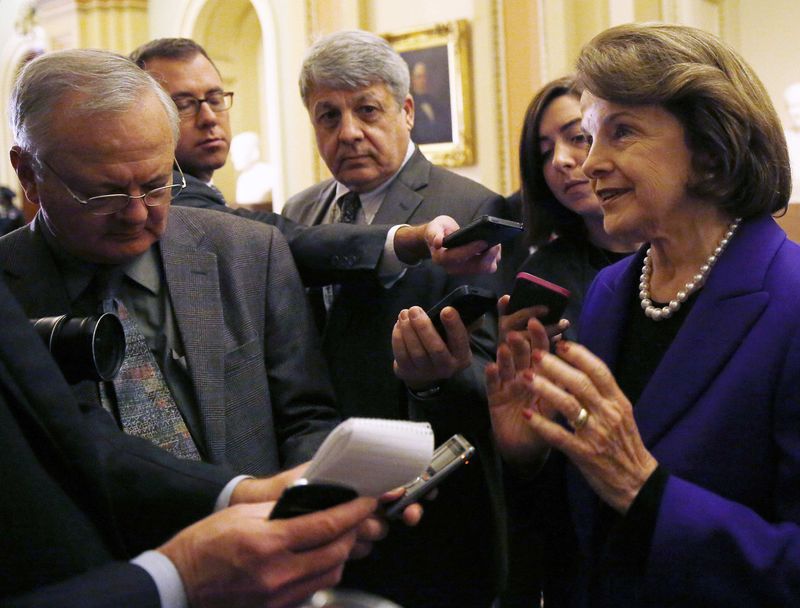By Warren Strobel and Lawrence Hurley
WASHINGTON (Reuters) - Minutes after a U.S. Senate intelligence panel released details of the CIA's torture of terrorism suspects, President Barack Obama suggested the country should move on.
The U.S. Department of Justice, which has the power to bring criminal charges, looks set to take him at his word.
Criminal prosecutions of those who ran secret prisons and "enhanced interrogations" between 2002 and 2006, look unlikely despite renewed demands by civil rights advocates. So do efforts to hold to account politicians who authorized the CIA actions.
"Rather than another reason to refight old arguments, I hope that today's report can help us leave these techniques where they belong — in the past," said Obama, who banned harsh interrogation techniques after taking office in 2009.
By then, President George W. Bush had ended many aspects of "Rendition, Detention and Interrogation" that he authorized after the Sept. 11, 2001 attacks on the United States by Islamist militants.
A senior law enforcement official said the Justice Department has no plans to reopen a criminal investigation. That inquiry, which narrowed to two cases in which prisoners died in CIA custody, was closed in 2012 with no criminal charges.
The CIA and its supporters have opposed criminal investigations, arguing their actions were legally authorized by the Bush-era Justice Department and the White House.
Accountability is needed, civil rights advocates say, to ensure that torture is not used in the future.
The 500-plus page report by the Senate Intelligence Committee's majority Democrats provides details of torture and argues that the CIA lied to the White House, Congress and the public.
"It reopens the issue of accountability," said Alberto Mora, who as the U.S. Navy's general counsel during the Bush administration, actively opposed the use of cruel interrogation practices at the Guantanamo Bay prison.
Mora said it has been "politically unthinkable" that Bush and his top advisors would be prosecuted, but the report's publication means "The shield that has been provided ... now may be no longer as effective as it was."
The only civilian ever charged with wrongdoing in the CIA's treatment of detainees after the Sept. 11 attacks is David Passaro, a CIA contractor convicted in 2006 of felony assault in the death of an Afghan prisoner.
Anthony Romero, executive director of the American Civil Liberties Union, said the Senate report provided a blueprint for possible prosecution. Romero also said that if Obama granted formal pardons to Bush administration officials, that would send a signal that torture prosecutions could occur in future.
"Either you prosecute those who committed the torture or you grant the pardons. You don't pretend that the people who broke the law are not criminals," Romero said.
There is also the possibility of criminal probes outside of the United States. Some former Bush aides have been warned against travel to Europe. In 2012 Italy convicted, in absentia, 22 CIA officers and an Air Force pilot for kidnapping an Egyptian cleric off the streets of Milan.

"The fact that the policies revealed in this report were authorized at a high level within the U.S. Government provides no excuse whatsoever," Ben Emmerson, the U.N. Special Rapporteur on counter terrorism and human rights, said in a statement. "Indeed, it reinforces the need for criminal accountability."
(Additional reporting by Steve Holland and Mark Hosenball; Editing by David Storey and Grant McCool)